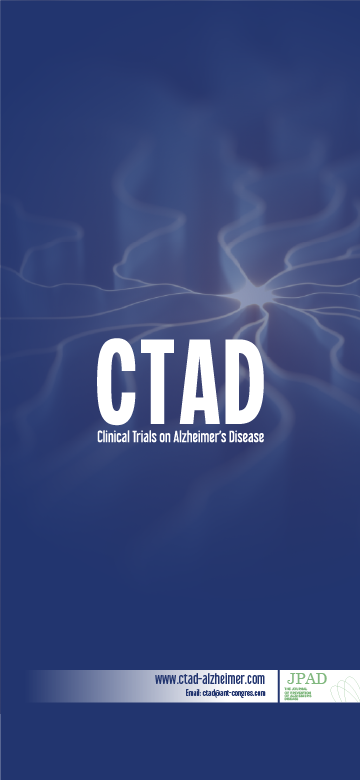Keynotes

Next Generation Anti-Amyloid Therapies .....Shuttling Past the ARIA Risk
Ronald B. DeMattos, PhD, Senior Vice President and Chief Scientific Officer for Neurobiologics, Eli Lilly and Company – Indianapolis, IN (United States)
Ronald B. DeMattos, Ph.D. is a Senior Vice President and Chief Scientific Officer for Neurobiologics at Eli Lilly. Dr. DeMattos received his doctorate in molecular and cellular biochemistry (SUNY – Stony Brook, 1998) and performed a post‑doctoral fellowship at Washington University School of Medicine (Holtzman Lab). Dr. DeMattos joined Eli Lilly in 2002 and has since held multiple scientific positions within Neuroscience Discovery over the last 20+ years. He discovered and developed numerous compounds that progressed to clinical studies in Alzheimer’s disease patients, including Solanezumab, Donanemab (FDA‑approved Kisunla), and Remturnetug (Phase‑3 ongoing). He currently leads multiple discovery projects while managing the Indianapolis Neurodegeneration Discovery group, whose mission is to develop novel first‑in‑class therapies for neurodegeneration and Alzheimer’s disease.

From Real World Data to Clinical Trials: The Case for Semaglutide In Alzheimer's Disease
Peter Johannsen, MD, PhD, International Medical Vice President, Novo Nordisk, Copenhagen (Denmark)
Dr. Peter Johannsen is a board‑certified neurologist with more than 30 years’ experience in cognitive neurology and Alzheimer’s trials. He joined Clinical Drug Development at Novo Nordisk in 2020.
Dr. Johannsen is scientifically responsible for Novo Nordisk’s neurology development programs, including Alzheimer’s disease.
He previously served as senior consultant neurologist at the Memory Clinic, Rigshospitalet, and the National Danish Dementia Research Centre, Copenhagen University Hospital, Denmark, gaining extensive experience from clinical trials in Alzheimer’s disease from first‑in‑human to Phase III. He has published over 100 scientific papers and given more than 300 lectures on Alzheimer’s disease treatment. He also served as vice‑chairman of the Danish Alzheimer Association and as a board member of the European Alzheimer’s Disease Consortium (EADC).

Enhancing Participation of Representative Populations in Alzheimer Disease Clinical Trials
Sid O’Bryant, PhD, Principal Investigator of the Health & Aging Brain Study, The University of North Texas Health Science Center at Fort Worth – Fort Worth, TX (United States)
Dr. Sid O'Bryant is the principal investigator of the Health & Aging Brain Study – Health Disparities (HABS‑HD), the most comprehensive study of Alzheimer’s disease among the three largest racial/ethnic groups in the U.S. ever conducted: African Americans, Hispanics, and non‑Hispanic whites. The goal of HABS‑HD is to understand the life‑course factors—including biological, sociocultural, environmental, and behavioral—that influence Alzheimer’s disease risk in later life. This work aims to create population‑specific precision‑medicine approaches to treat and prevent Alzheimer’s disease. Dr. O’Bryant is also a global expert in using blood‑based biomarkers to develop precision‑medicine strategies for diagnosing and treating Alzheimer’s disease, Parkinson’s disease, dementia with Lewy bodies, and Alzheimer’s disease in adults with Down Syndrome.






